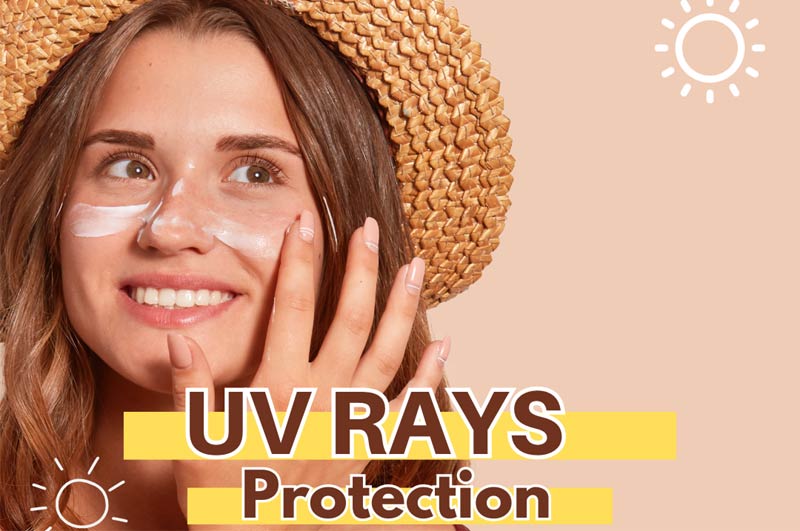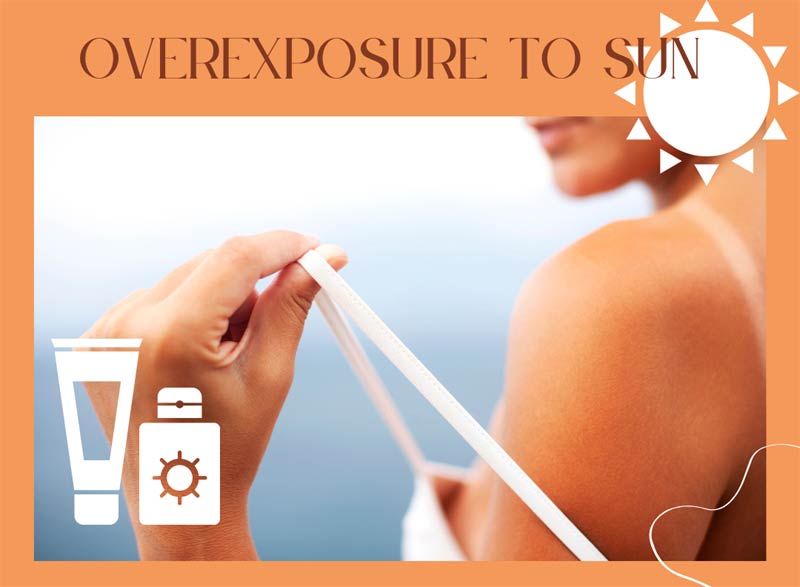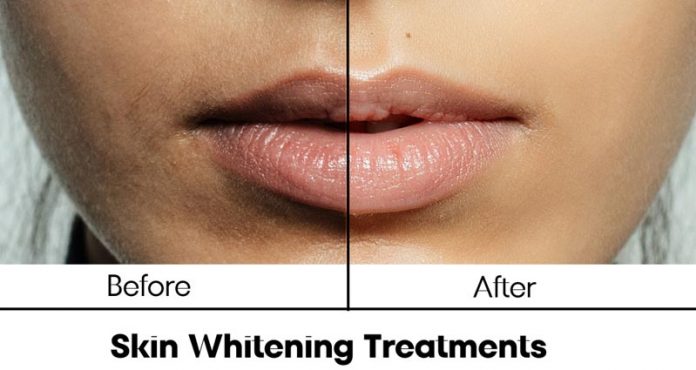If you are having a tough time covering up your skin pigmentation, acne blemishes, dark spots, or uneven skin tone, opt for a professional skin whitening treatment to feel confident. Even though home remedies can improve the skin tone for a day or two, only skin whitening treatments can deliver lasting results. Read on to know more about the factors contributing to one’s skin tone, why you might need a skin whitening treatment, and various treatment options to make a well-informed decision.
What Are Skin Whitening Treatments?
Skin whitening treatments are specifically developed to lower the excess melanin content in your skin. As the increased amount of melanin can lead to uneven skin and dark spots, this treatment aims to cut it down to give you fairer skin, which is a few shades lighter than your skin tone.
This treatment is apt for people looking to lower the effects of sun damage, pimple marks, freckles, melasma, and more. As the options for skin whitening treatment are proliferating, restoring the lost fairness and glow to your skin is easy. From chemical peels to bleaching lotions, you can choose from several effective options within your budget in getting even skin tone with a lightened effect.
Different Skin Whitening Treatment Options
Several options are available for you to experiment with to achieve an excellent skin whitening effect. Consider your specific needs before choosing a skin whitening treatment for your face, overall body, or a specific body part. Some of the popular skin whitening treatments are discussed below.
1. Topical Creams and Serums
You can choose from an array of chemical-based topical serums and creams for skin lightening in the market. Choose any product with effective ingredients like kojic acid, azelaic acid, hydroquinone, lactic acid, arbutin, glycolic acid, and retinol. These chemical components have potent bleaching properties, which might whiten your skin tone quickly. However, they might not offer long-lasting results and can trigger undesirable side effects. So please do not use them for several months.
2. Chemical Peels
You can opt for chemical peels, a gentle procedure that lightens your skin by lowering the tanning effect, dark spots, blemishes, and uneven skin color. Your dermatologist will apply an alpha-hydroxy acid solution to exfoliate the damaged upper skin surface. This process removes the accumulation of melanin and helps develop healthy tissues. The procedure reduces hyperpigmentation, diminishes dark spots, and evens skin tone. One has a go for multiple sessions for optimal results. In addition to the treatment procedure, sun protection and proper skin care are required to maintain the results[5].
3. Laser Treatments
The melanin buildup in your skin is lowered with a concentrated laser beam focused on the targeted area. So, the regenerated skin has a bright and healthy glow. Lasabrasion or laser peel treatment is an excellent choice for dull skin, tanned skin, skin pigmentation, and dark spots.
4. Injectable Treatments
Skin whitening shots with a lightening agent like glutathione cuts down the tyrosinase enzyme production to lower melanin levels[6]. As a result, it enhances your skin tone and detoxifies your body.
In a study done at Dr. Cipto Mangunkusumo Hospital, 3 trials were done to determine the efficacy and safety of the glutathione injections. Out of 3, 2 trials showed promising results as a skin-whitening agent. In addition, it also revealed significant benefits for improving the skin elasticity and also helped in reducing skin wrinkles[7].
Which Treatment Is Best for Skin Whitening?
The answer to the question largely depends on individual needs, skin type, and desired results. Topical creams and serums are non-invasive and can bring in results. However, these results are not long-lasting. Chemical peels are a better treatment solution that exfoliates the skin’s surface and reduces hyperpigmentation. However, it might require multiple sessions and excellent aftercare. Laser treatments can get rid of melanin buildup and produce great results that are noticeable and long-lasting. It is primarily beneficial for dull or pigmented skin. Injectable treatments like glutathione are also promising treatment solutions that improve whitening and skin elasticity.
The Enigmatic Spectrum: Unveiling 7 Influential Factors of Skin Color
Factors that influence skin color tend to differ from one individual to another, as it is usually influenced by the presence of melanocytes, genetics, and other factors listed below.
The Role of Melanocytes
Your skin tone depends on the amount of melanin pigment present in your skin as a result of the production process of the melanocytes called melanogenesis. The variation in the skin tone of individuals, such as dark-skinned and light tones, is based on the melanocyte activity levels. For example, Eumelanin causes your skin to have a brown tone, and the lack of it makes the skin tone appear fairer. Individuals whose melanocytes cannot produce melanin pigment develop a skin condition known as Albinism.
Protection Against UV Rays

The presence of this melanin pigment in your skin decides how your skin is protected from the effect of harmful UV rays[1]. Conversely, less melanin pigment in your skin indicates that your skin is prone to cancer, causing UV rays, radiation, and sunburn. You might want to check out, how to increase melanin for skin.
Activity of Keratinocytes
People with a dark skin tone possess more active melanocytes than their counterparts with a fairer skin tone. The skin pigment called keratinocytes[2] is responsible for lending dark and light hue to your skin. When melanocytes produce and distribute melanin, this pigment is mainly transferred to keratinocytes which influence the skin tone.
Overexposure to Sun

Too much exposure to the sun’s UV rays[3] can tan your skin and affect the skin tone drastically. Tanning can make your skin tone darker by improving melanin production, which may lead to issues like skin pigmentation.
Increase in Carotene Levels
The carotene levels in the hypodermis and epidermis layers of the skin can impact your skin tone. Carotene is an orangish-yellow pigment usually found in yellow-tinted vegetables like carrots. Too much consumption of carotene-loaded foods may make your skin tone appear yellowish.
Oxygen Saturation Levels
The ability of your blood vessels to produce oxygen-saturating hemoglobin in the dermis layer of the skin also influence skin color[4]. This blood vessel is the protein pigment loaded with iron that gives a pinkish glow to your skin tone. Lack of oxygen saturation levels lends a bluish, grey, or paler look to your skin tone. The lack of the required number of hemoglobin might also cause anemia. Light-toned individuals tend to have a pinkish tint, as they have a high amount of oxygen-loaded hemoglobin in their dermis.
Heredity Factor
The skin tone of your ancestors has a considerable role in influencing your skin tone, as it is underlined by a critical biological feature called genetics. For example, the skin tone of your ancestors would have been based on their geographical location, which in turn would get reflected in your skin tone. Such genetically influenced feature is known as polygenic traits, which is responsible for the varied skin tones in individuals.
Related Readings and Resources:
- Blog Post: Skin Lightening Treatment in Hyderabad
- Blog Post: Myths and Facts about Skin Whitening
Reasons Why People Seek Skin Whitening Treatments
To Improve Overall Appearance
As skin whitening treatments focus on lowering the melanin content in one’s skin, people prefer these procedures to have great-looking skin. This treatment can make your skin look flawless and clear by erasing the freckles, dark spots, fine lines, sun damage signs, age spots, and melasma to enhance your overall appearance.
To Enhance Self-Esteem and Boost Self-Confidence
When you have pigmented skin or uneven skin tone, you might lack confidence or develop an inferiority complex when meeting others or attending a party. By opting for a skin whitening treatment, you can look confident when stepping out, as you will not need layers of makeup to handle uneven patches or pigmentation on your skin.
Invest in Less Makeup and Beauty Products
If you are not a makeup lover, or if it is causing severe rashes or allergies in your skin, then it is time to choose a skin whitening procedure. With the skin whitening treatment, you can flaunt a minimalist look without any traces of makeup. Plus, you need not spend a specific sum for makeup and beauty products each month.
Safe Practices and Precautions
After a skin whitening treatment, follow these tips:
- Follow a healthy lifestyle
- Wear sunscreen every day
- Follow a basic skincare regime
- Go for maintenance sessions
- Stay hydrated
Addressing Societal Beauty Standards and Promoting Self-Acceptance
Every country worldwide has set some specific standards for beauty, which is why people emphasize enhancing one’s physical appearance. But, it is essential to accept and love yourselves by improving your body confidence and having positive thoughts. Learning to accept yourself and maintaining a healthy body is the need of the hour. However, if you feel a skin whitening treatment can get rid of your skin issues and help grow your persona, then choose the services of a professional skin clinic to step out with confidence.
References
- Department of Dermatology, Saudi-German Hospital & Clinic, Dubai – https://pubmed.ncbi.nlm.nih.gov/34515229/
- Skin Pharmacol Physiol (2022) 35 (2): 65–76 – https://karger.com
- African Journal of Biological Sciences – https://papers.ssrn.com/sol3/papers.cfm?abstract_id=3376813
- Jin Ho Chung, in Comprehensive Series in Photo sciences, 2001 – https://www.sciencedirect.com
- Maulana Azad Medical College, and Lok Nayak Hospital, New Delhi, India – https://www.ncbi.nlm.nih.gov/pmc/articles/PMC3560164/
- Skinnocence: The Skin Clinic, Gurgaon, Haryana, India – https://pubmed.ncbi.nlm.nih.gov/27088927/
- Faculty of Medicine, Universitas Indonesia, Jakarta, Indonesia. – https://www.ncbi.nlm.nih.gov/pmc/articles/PMC7196133/









